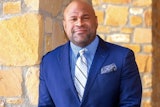Engaging in Academic Racial Profiling
SUNY Trustee Candace de Russy is quoted in Newsday (Feb. 4, 2002) as stating, “… most Black studies departments are flabby, feel-good programs that carry anti-American bias and do little to advance hard knowledge.” And she further asserts, “Black studies departments became therapeutic in nature, and the goal became consciousness raising as opposed to conveying solid scholarship…”
De Russy has no foundation or “hard knowledge” for her assertions, has done no credible research in the field, has no credentials that would allow her views to be taken seriously, yet she makes ridiculous global statements about “most” Black studies departments. She is engaging in academic racial profiling. Those of us, who do have knowledge of the field, know that Black studies evolved during the 1960s and ’70s because of the exclusion of the history, contributions and intellectual traditions of people of African descent from traditional academic disciplines. The same can be said for women’s studies and other area and ethnic studies (such as Asian American studies, Native American studies, Latino studies, etc.), which de Russy also attacks.
De Russy singled out Black studies at Stony Brook and the College at Old Westbury as “lax.” The Black studies department at Stony Brook has a superb faculty of scholars/educators, all of whom have affiliations (most by joint appointments) with departments in their home disciplines. Some have won major teaching awards like the Chancellor’s Award for Excellence in Teaching and the Teacher/Scholar Award. The courses in the Africana studies department offer a global perspective, are rigorous, and demand high levels of performance by students, including critical thinking, research and extensive reading and writing. Students vote with their feet, and it is therefore highly significant that on average approximately 1,800 to 2,000 students take Africana studies courses at Stony Brook each academic year, and approximately 60 percent are White, the remainder are students of African descent, and Asian and Latino students.
As an indication of how central Africana studies is to the mission of our university, courses offered in the department are used as part of the degree granting programs of seven other academic departments (including history, political science, English, anthropology, art, women’s studies, European studies). Given these facts, de Russy’s ad hominem attack on Black studies at Stony Brook has the hollow ring of demagoguery. Equally revealing is her spurious attack on Black studies at the College of Old Westbury, which does not even have a Black studies program!
What do we call someone who speaks without knowledge or research? Ignorant at best. De Russy is not speaking as an individual without official standing. She is an official of the State of New York and she speaks for the SUNY Board of Trustees and Gov. Pataki, who appointed her. She impacts both the academic and fiscal decisions of the Board of Trustees, with consequences for the entire SUNY system.
There appears to be a desperate but futile attempt by conservatives to turn the clock back in order to recapture the kind of intellectual ambiance which prevailed in academe when naked imperialism and colonialism ruled the world, and academe was configured and harnessed to serve and justify this horrific period of world history. However, in reality, if Sept. 11 has taught us anything, it is that given the impact of globalization and the multiplicity of problems such as poverty, economic exploitation, disease, political strife and social dislocation — which are largely the legacy of colonialism — ethnic and area studies are more needed in academe today than ever.
— Dr. William McAdoo is chairman of the department of Africana Studies at the State University of New York, Stony Brook.
© Copyright 2005 by DiverseEducation.com















